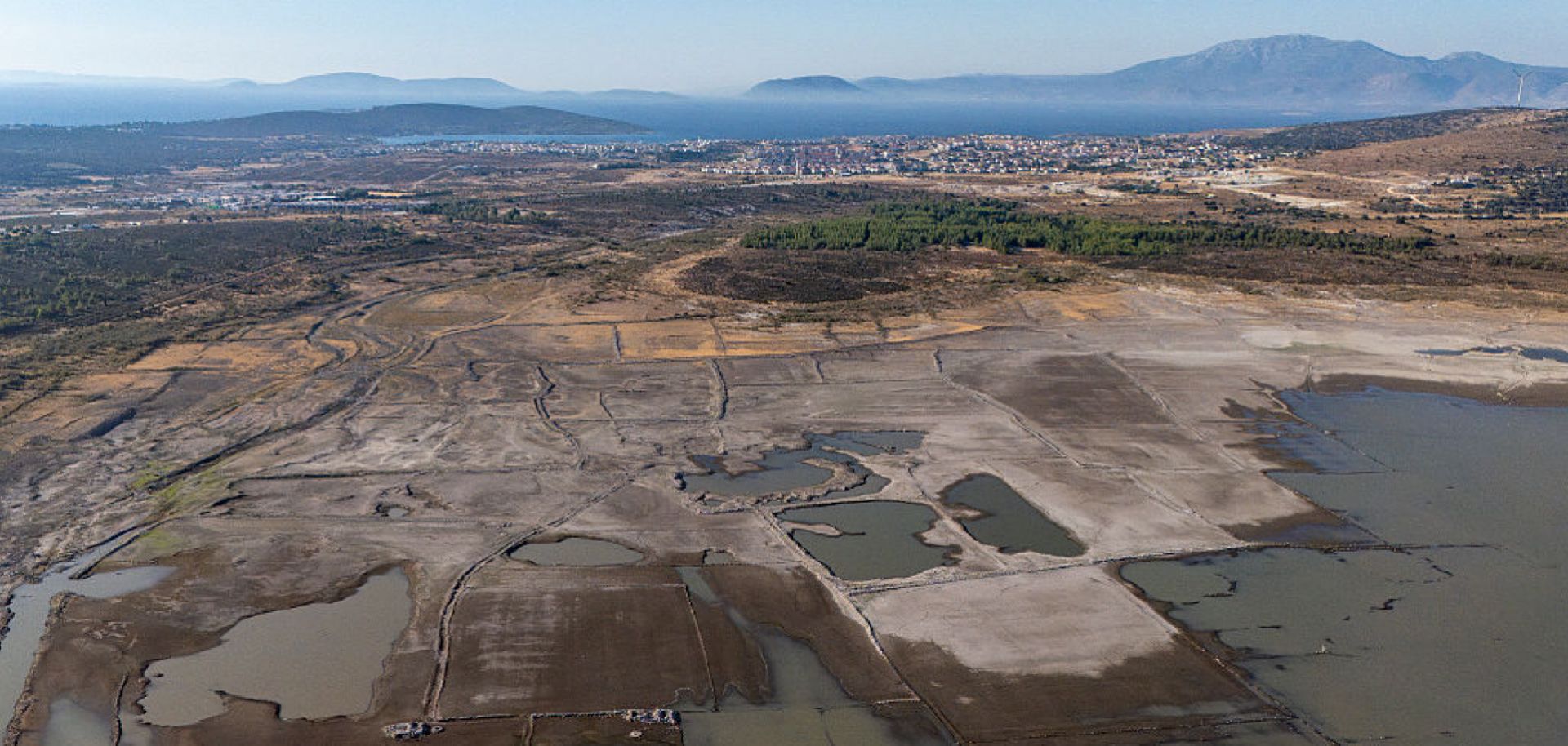Turkish water shortages are likely to remain largely unaddressed at the national level due to the fractured nature of water management, leaving local leaders responsible for water problems while affecting tourism, agriculture and manufacturing, particularly in western Turkey, dragging down economic growth. From Greece to Iraq, the eastern Mediterranean Basin and the Middle East have experienced a sweltering summer. Turkey, situated at the heart of this region, has experienced record-breaking heatwaves. In July at Silopi, in southeastern Turkey, temperatures reached a new nationwide high of 50.5 degrees Celsius (123 degrees Fahrenheit). The heat has exacerbated long-standing water shortages across the country, with the major cities of Izmir, Ankara and Istanbul all facing increasing strains on their supplies. Izmir, the country's third-largest city, was forced to institute water cuts in July. In Thrace, outside of Istanbul, Tekirdag's Naip Dam hasn't seen rain since May and saw its reservoir levels fall to...

